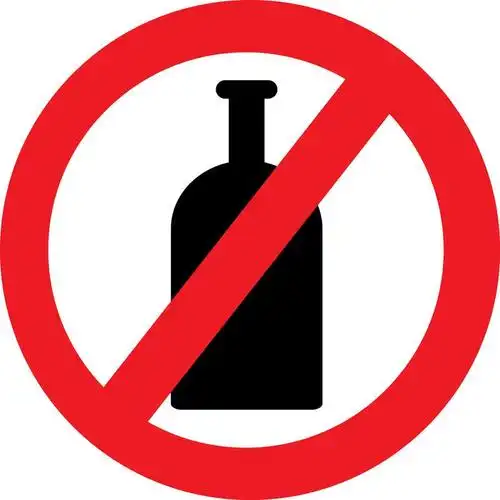The Hidden Link: How Alcohol Disrupts Your Daytime Alertness and Why Quitting Is the Solution

Many people enjoy a glass of wine with dinner or a few beers while watching the game, believing it helps them relax and unwind. What they don't realize is that while alcohol may initially make them feel drowsy and help them fall asleep faster, it's actually sabotaging their sleep quality and leading to significant daytime sleepiness. Understanding how alcohol affects your sleep architecture and daytime alertness reveals why quitting or reducing alcohol consumption is essential for maintaining optimal cognitive function and energy levels throughout the day.
The Science Behind Alcohol and Sleep Disruption
Alcohol is a central nervous system depressant that affects neurotransmitters in the brain, particularly gamma-aminobutyric acid (GABA). When you consume alcohol, it enhances the effects of GABA, leading to feelings of relaxation and sedation. This is why many people believe alcohol helps them sleep. However, this initial sedative effect masks alcohol's more damaging impact on sleep architecture—the natural pattern of sleep cycles that includes both REM (rapid eye movement) and non-REM stages.
During a normal night's sleep, your body cycles through four stages: three non-REM stages and one REM stage. The third stage of non-REM sleep, known as deep sleep or slow-wave sleep, is particularly important for physical restoration and feeling refreshed upon waking. REM sleep, which occurs later in the sleep cycle, is crucial for memory consolidation, learning, and emotional regulation.
Alcohol consumption before bed significantly alters this natural progression. While it may help you fall asleep faster initially, it suppresses REM sleep in the first half of the night. As alcohol is metabolized and its sedative effects wear off, your body experiences a rebound effect in the second half of the night, characterized by increased REM sleep and more frequent awakenings. This disruption leads to fragmented, poor-quality sleep that leaves you feeling tired and groggy the next day.
The Vicious Cycle of Daytime Sleepiness
The impact of alcohol-induced sleep disruption extends far beyond the night itself. When you wake up after drinking, even if you've slept for 7-8 hours, you're likely to experience:
-
Reduced sleep quality: The suppression and rebound of REM sleep prevents you from getting the restorative sleep your brain and body need.
-
Next-day impairment: Studies show that alcohol consumption before bed leads to decreased alertness, concentration problems, and slower reaction times the following day.
-
Increased sleep inertia: That groggy, disoriented feeling upon waking is often more pronounced after drinking alcohol.
-
Compensatory caffeine consumption: Many people try to combat alcohol-induced fatigue with excessive caffeine, which can further disrupt sleep patterns and create a vicious cycle.
This daytime sleepiness isn't just an inconvenience—it can have serious consequences for your safety, productivity, and overall quality of life. Research has shown that alcohol-related sleep disturbances contribute to decreased work performance, increased risk of accidents, and impaired decision-making abilities.
The Benefits of Quitting Alcohol for Daytime Alertness
When you reduce or eliminate alcohol consumption, particularly in the hours before bedtime, you allow your natural sleep architecture to restore itself. The benefits become apparent surprisingly quickly:
Within the first week of quitting alcohol, most people report:
- Falling asleep more naturally without relying on alcohol's sedative effects
- Experiencing more restorative deep sleep
- Waking up feeling more refreshed and alert
- Having more stable energy levels throughout the day
After several weeks of abstinence, more significant improvements emerge:
- Restoration of normal REM sleep patterns
- Reduced nighttime awakenings
- Improved dream recall (a sign of healthy REM sleep)
- Enhanced cognitive function and memory consolidation
- Better mood regulation and emotional stability
Long-term benefits include:
- Established healthy sleep patterns without chemical interference
- Sustainable daytime energy without caffeine dependence
- Improved overall sleep quality and duration
- Enhanced physical and mental performance
Practical Strategies for Reducing Alcohol Consumption
If you've recognized that alcohol is contributing to your daytime sleepiness, here are some effective strategies to help you cut back or quit:
-
Establish a cutoff time: Stop consuming alcohol at least 3-4 hours before bedtime to allow your body time to metabolize it before sleep.
-
Practice mindful drinking: Pay attention to how alcohol affects your sleep and next-day alertness. Keep a sleep journal to track the connection between drinking and fatigue.
-
Create new bedtime routines: Replace nightcaps with other relaxing activities like reading, meditation, or herbal tea.
-
Seek support: Consider joining support groups or talking to healthcare professionals about strategies for reducing alcohol consumption.
-
Focus on hydration: Drink plenty of water throughout the day and especially when consuming alcohol to help mitigate its effects.
-
Improve sleep hygiene: Create an optimal sleep environment with cool temperatures, darkness, and minimal electronic device use before bed.
The connection between alcohol consumption and daytime sleepiness is clear and scientifically supported. While alcohol may provide temporary relaxation, its disruptive effects on sleep architecture lead to next-day fatigue, impaired cognitive function, and decreased quality of life. By understanding this relationship and taking steps to reduce or eliminate alcohol consumption—particularly before bedtime—you can reclaim your natural sleep patterns, wake up feeling refreshed, and maintain optimal alertness throughout the day. Your body's natural sleep mechanisms are remarkably resilient; given the opportunity to function without alcohol's interference, they will restore the restorative sleep you need to perform at your best every day.




发表评论